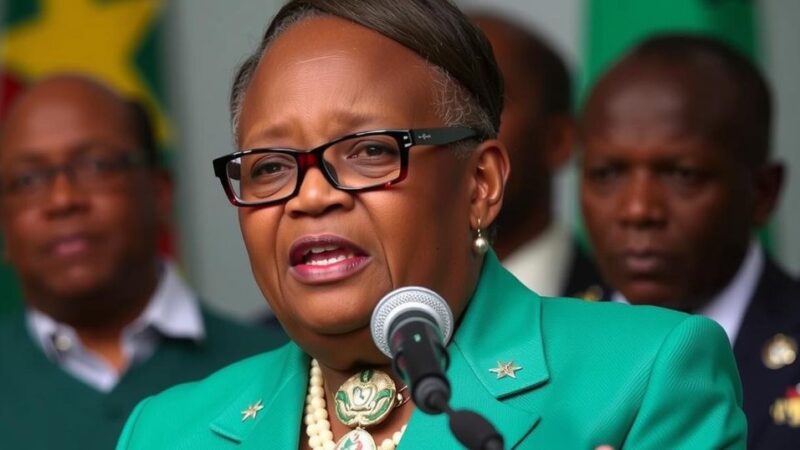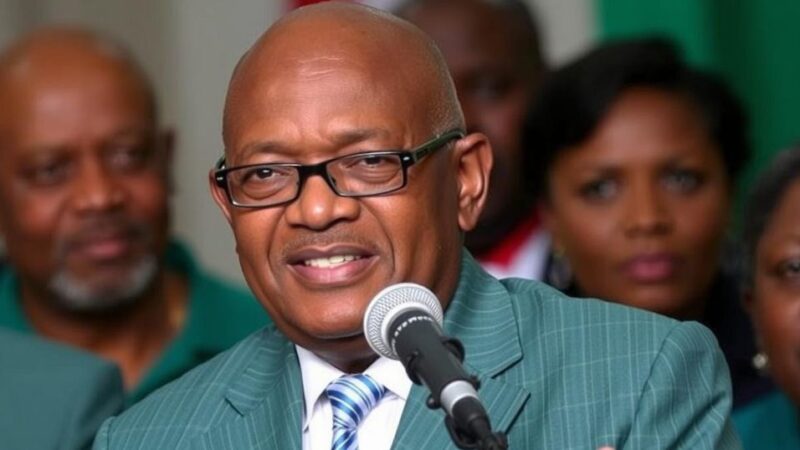Uruguay’s recent presidential elections lacked excitement, failing to engage voters, particularly youth who feel marginalized despite the country’s social successes. With the youth unemployment rate at 26% and rising discontent among older generations, there is a growing apathy towards politics. This disconnect illustrates a potential threat to Uruguay’s strong democratic foundations, raising concerns about the future of political engagement in the country.
In Uruguay, the recent presidential elections have not garnered significant public attention, reflecting a year of uninspiring political campaigns for many voters. The lack of compelling candidates resulted in no individual securing a majority in the first round, leading to a runoff election. This uncharacteristically dull political landscape underpins a growing concern among the youth who feel increasingly marginalized despite the country’s noted achievements in economic and social policies.
Historically, Uruguay has exhibited a vibrant political culture, characterized by passionate debates and public engagement, stemming from a collective memory of past authoritarian rule. Nevertheless, it now faces an alarming disconnect between the political elite and the younger generation. The recent Latinobarómetro poll underscores this, revealing that nearly 40% of youth expressed a willingness to sacrifice democratic values for effective governance addressing their pressing needs.
Youth unemployment continues to plague the nation, recorded at a distressing 26% in 2023, placing it among the highest rates in Latin America. Furthermore, escalating dropout rates, food insecurity, and disproportionately high incarceration rates among young people exacerbate feelings of disenfranchisement. The cumulative impact of these issues, coupled with the mental health repercussions of the Covid-19 pandemic—wherein suicide has become a leading cause of death among youth—has cultivated a pervasive apathy towards political participation.
Moreover, dissatisfaction is widespread across generational lines, with older citizens expressing disappointment over the government’s handling of childhood poverty, inflation concerns, and corruption. In informal discussions prior to the elections, several undecided young voters articulated their sentiment that the runoff candidates, Yamandú Orsi from the Broad Front and Álvaro Delgado from the National Party, appeared disconnected from the challenges faced by their generation. This sentiment not only signals a critical moment for Uruguay’s democracy but also necessitates urgent attention to bridge the gap between political institutions and the youth they represent.
The political landscape in Uruguay has historically been dynamic, with citizens actively participating in the democratic process, largely in response to the dark legacy of dictatorship experienced in earlier decades. As one of the more politically stable countries in Latin America, Uruguay’s electoral history has been characterized by spirited engagement and contestation between right and left factions. However, recent elections reveal troubling trends, particularly among the youth, who are grappling with high rates of unemployment, educational challenges, and a sense of political disillusionment that threatens the fabric of its democracy.
In conclusion, while Uruguay’s recent elections may seem mundane on the surface, they conceal significant underlying issues affecting the youth and broader populace. The increasing political apathy and willingness to forgo democratic ideals for more immediate solutions indicate a potential crisis for future governance. It is imperative for political leaders to reconnect with their constituents, particularly the younger demographic, to uphold the democratic values that have defined Uruguay’s political history for decades.
Original Source: www.nytimes.com







